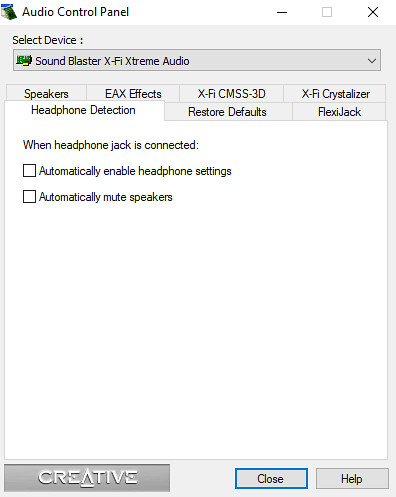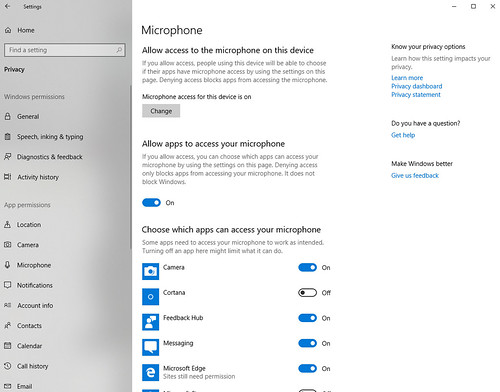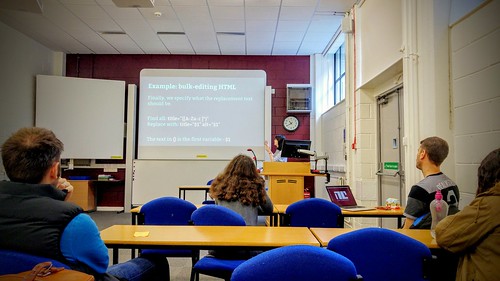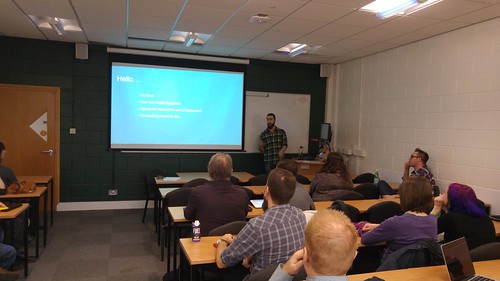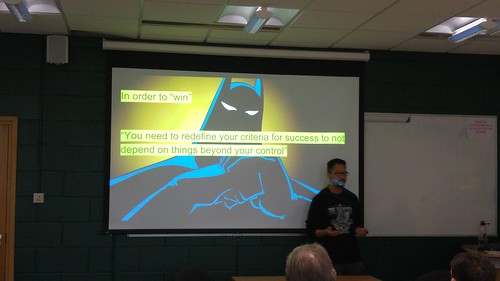My life has changed quite a bit this year. I started out as a Lead Developer working on our new reliability engineering programme then our Head of Software Engineering moved on to pastures new and against all sense They saw fit to put me in charge of over a hundred technical people, including their hopes, dreams and careers.
The handover was a bit of a whirlwind, but I distinctly remember standing in our foyer as I was leaving on the handover day, thinking "shit, I'm Head of Software Engineering here".
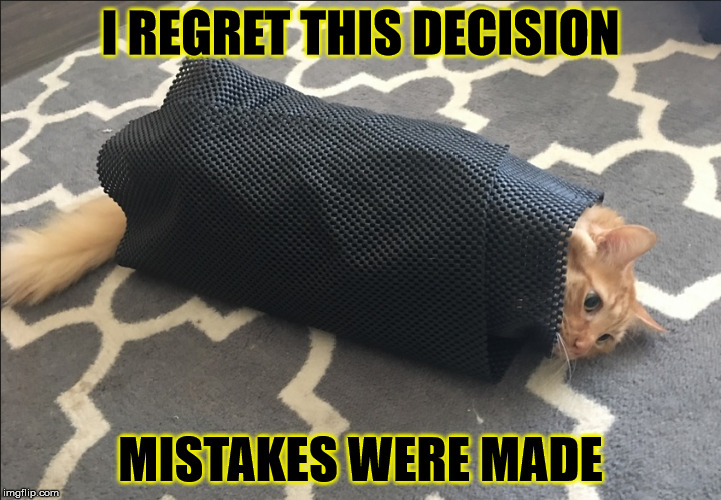
Yeah, the imposter syndrome was very real.
So anyway, there are highs and lows in any job and when those lows come around it's important to remember why one does the role. In my case, I laid it out the other day in a brief presentation to the department about the software engineering community. Community is defined as a group which has the same attitudes or interests in common - by that definition, the software engineering community is a loose collection of people who happen to do the same job. For me, that misses a great deal - people don't spend their lives seeking out community because they want to share a label.
Community means connection, safety and support. It means being able to grow, safe in the knowledge that others around you acknowledge your strengths and weaknesses, where you are on your journey and are willing to give of themselves to help you come along. It means being able to reach out to people around you when you're in need of help and be confident you'll find a supportive response. It means an environment you can be the best version of yourself that you want to be, whatever that might mean.
This doesn't happen by accident. It is all driven by connections between people and these take time to grow and need space in which to thrive. At work, this means many things but I think they can be boiled down to two axioms: enabling a safe environment for people to talk and creating the space for them to do so.
Community leadership has a responsibility to create the space for community to flourish. At GDS one thing we have is a monthly community hour which brings technologists from across the organisation together. We have various activities which are carefully considered to encourage participation by our very own
liberating structures expert,
David Heath. However, no matter how much work he puts in the gatherings are only successful because the community turns up and engages. Because everyone shows willing, barriers are broken down and slowly people get to know each other.
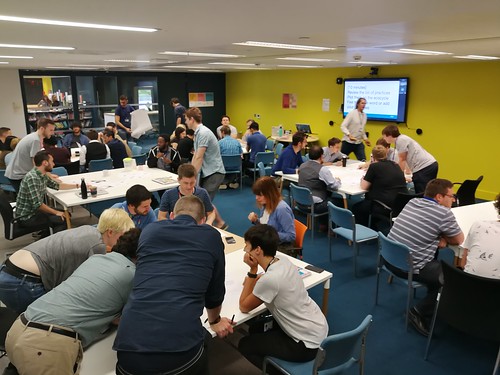
This is just one example. I've written before about
Show & Tell, and I'm also looking at different ways of helping everyone have a voice. But I'm also challenging people with the response "so what are you going to do to help?" - a question which not only helps increase the possibilities of the community, but also gives important opportunities for growth to the individual. All of this needs to be carefully balanced against delivery of course, so putting in place sustainable events is very important as it's all too easy for any kind of community to vanish when the crunch comes and people turn inwards.
I'm deliberately not writing about diversity in this post, but clearly implementation of anything here needs to be considered from a variety of different angles and this brings me back to that presentation and the real reason I do this job. We can discuss groups of people and even do some good things to help them, but that lays down a wide path that goes from A to B when it's too easy to forget that that group is made up of individuals. Every single one a different person, with different hopes, dreams and needs. Each is coming from a different place, with a different collection of experiences and each is going to a different place. In short, they are different.
This isn't to say that broad-brush improvements aren't important - they are vital for raising the base level for everyone. But they should be viewed through the lens of "this will affect X individuals" rather than "this group behaves like this". It's essential to remember the individual, even though in a position of leadership it's often impossible to know everyone. That doesn't mean we shouldn't do what we can.
If I vanished tomorrow, those who remembered me wouldn't remember the hours of meetings I attended or the improvements to our governance structures I've implemented. They'd remember how I touched their individual lives - the battles I fought for them, the time I spent with them talking through their hopes and fears, and the ways I have helped them move forward in their lives and careers.
This is why I do what I do. Because day by day I like to think that my efforts are helping to improve the lives of the people around me who are doing such good work - not as a group, but as a collection of individuals.
It's inevitable we're going to end on the parable of the starfish:
A man was walking along a deserted beach at sunset. As he walked he could see a young boy in the distance, as he drew nearer he noticed that the boy kept bending down, picking something up and throwing it into the water. Time and again he kept hurling things into the ocean. As the man approached even closer, he was able to see that the boy was picking up starfish that had been washed up on the beach and, one at a time he was throwing them back into the water. The man asked the boy what he was doing, the boy replied, "I am throwing these washed up starfish back into the ocean, or else they will die through lack of oxygen."
"But", said the man, "You can't possibly save them all, there are thousands on this beach, and this must be happening on hundreds of beaches along the coast. You can't possibly make a difference."
The boy smiled, bent down and picked up another starfish, and as he threw it back into the sea, he replied "Made a difference to that one".
There are various ways to read this - it's supposed to highlight the power we have as individuals to change lives, and doing something is better than nothing. It's not supposed to dismiss the need to ask wider strategic questions like "why are they on the beach in the first place?" or "can we stop this happening again?". However it does contain a warning against asking those questions, while forgetting that all the while there are thousands of individuals dying on the beach.

Also, starfish are weird.







